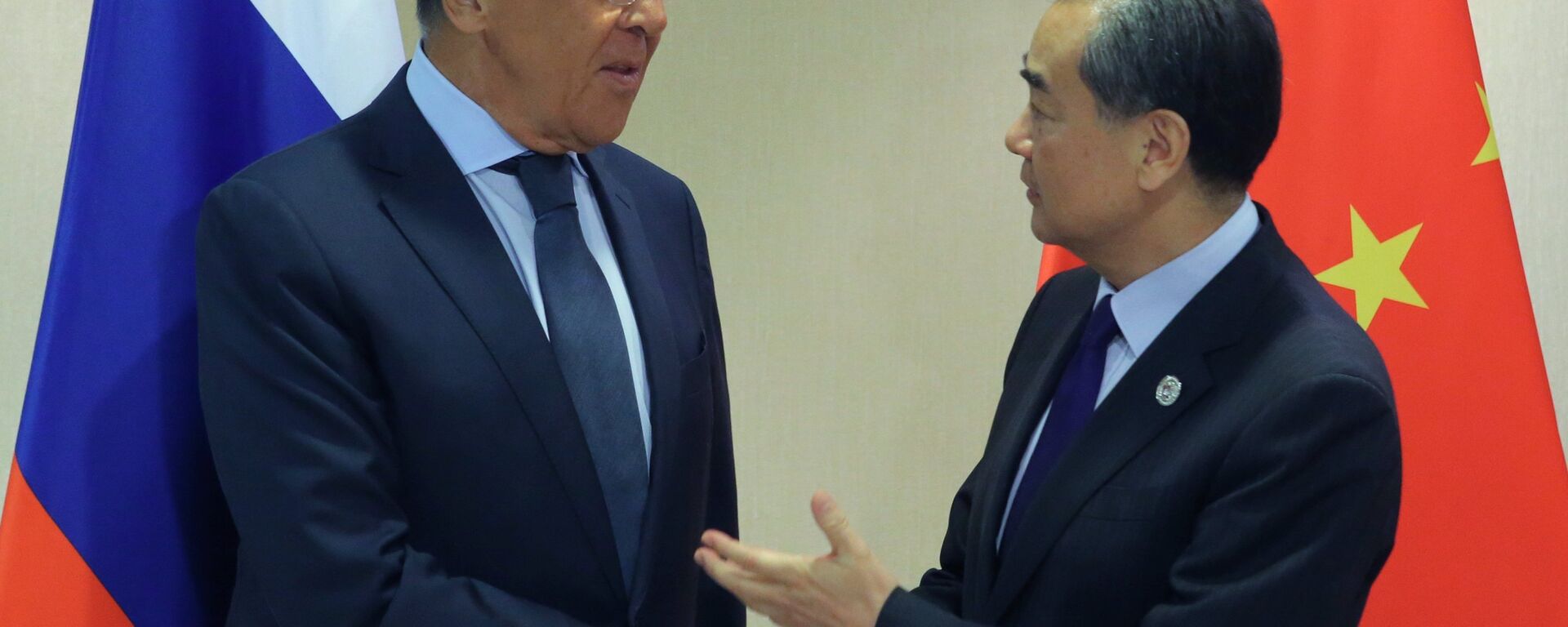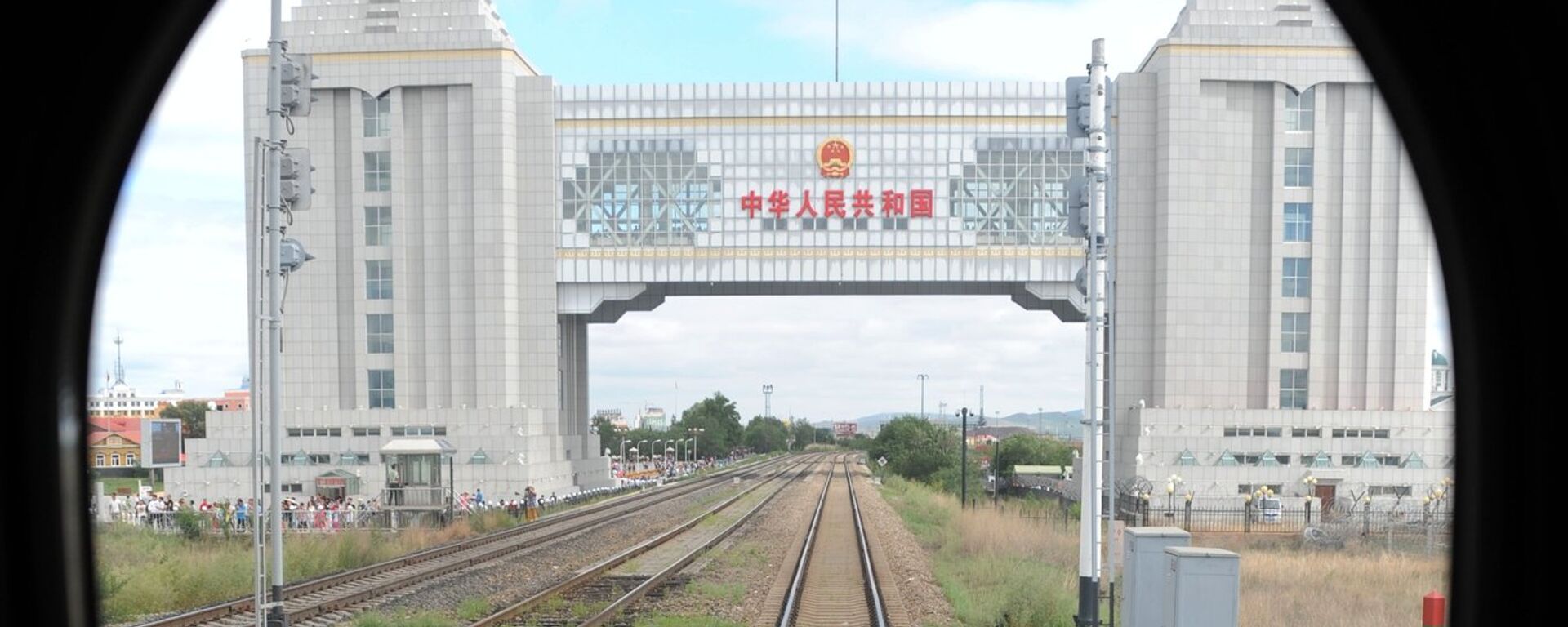https://sputnikglobe.com/20220521/china-coal-imports-from-russia-almost-double-amid-western-sanctions--1095690019.html
China Coal Imports From Russia Almost Double Amid Western Sanctions
China Coal Imports From Russia Almost Double Amid Western Sanctions
Sputnik International
Earlier this month, the Chinese General Administration of Customs revealed that wider trade with Russia went up 25.9 percent in the first four months of 2022... 21.05.2022, Sputnik International
2022-05-21T15:54+0000
2022-05-21T15:54+0000
2022-05-21T15:54+0000
us
china
trade
coal
sanctions
special operation
ukraine
https://cdn1.img.sputnikglobe.com/img/07e6/03/03/1093552688_0:161:3071:1888_1920x0_80_0_0_b608cf87a5a8ee59f341bd112100ed50.jpg
China's imports of coal from Russia almost doubled between March and April, soaring to 4.42 million metric tons, according to trade data from Refinitiv, one of the world's largest providers of financial market data and infrastructure.The figure means that Russia has already overtaken Australia as China's second-largest supplier since 2021 after Indonesia. Moscow now supplies 19% of Beijing’s coal, up from the 14% share it held in March.This record purchase of coal comes despite the US and its allies targeting Moscow with “severe” sanctions over its ongoing special operation to demilitarise and de-Nazify Ukraine, announced by Russian President Vladimir Putin on 24 February.He added that the situation had changed by March, when it became clear that “the EU wasn't moving fast to ban imports, and that effectively prevented both the US and the EU from imposing broader sanctions that would affect other buyers, there was a jump in purchases resulting from latent demand”.Myllyvirta argued that thus far, the Chinese government “seems to be walking a line of maintaining friendly relationships with Russia without encouraging or directing Chinese firms to increase business with the country, and discouraging anything that might run afoul of the sanctions imposed on China”.The analyst explained that even though China vows to cut its dependence on fossil fuels, the country still needs coal to power its economy.Toby Hassall, lead analyst for Coal Market Research at the London Stock Exchange Group, argued that China is buying more Russian coal at a big discount because “in recent months, sanctions [against Moscow] have created a stark bifurcation of the global seaborne coal market, as many importers are now unable or unwilling to import coal from Russia”.With the pool of buyers becoming smaller, those importers who are ready to buy coal from Russia are "paying much lower prices for this supply compared with coal sourced from other origins," Hassall told CNN.This followed the Chinese General Administration of Customs revealing in early May that Russia-China trade in January-April 2022 amounted to $51.09 billion. China’s exports to Russia increased by 11.3% year-on-year and amounted to $20.24 billion, while Russia’s exports to China went up 37.8 percent and stood at $30.85 billion.
https://sputnikglobe.com/20220330/russia-and-china-will-move-towards-a-multipolar-fair-world-order--lavrov-1094310186.html
https://sputnikglobe.com/20220427/russia-opens-first-cross-border-railway-bridge-to-china-1095091121.html
china
ukraine
Sputnik International
feedback@sputniknews.com
+74956456601
MIA „Rossiya Segodnya“
2022
Oleg Burunov
https://cdn1.img.sputnikglobe.com/img/07e4/09/0b/1080424846_0:0:2048:2048_100x100_80_0_0_3d7b461f8a98586fa3fe739930816aea.jpg
Oleg Burunov
https://cdn1.img.sputnikglobe.com/img/07e4/09/0b/1080424846_0:0:2048:2048_100x100_80_0_0_3d7b461f8a98586fa3fe739930816aea.jpg
News
en_EN
Sputnik International
feedback@sputniknews.com
+74956456601
MIA „Rossiya Segodnya“
Sputnik International
feedback@sputniknews.com
+74956456601
MIA „Rossiya Segodnya“
Oleg Burunov
https://cdn1.img.sputnikglobe.com/img/07e4/09/0b/1080424846_0:0:2048:2048_100x100_80_0_0_3d7b461f8a98586fa3fe739930816aea.jpg
us, china, trade, coal, sanctions, special operation, ukraine
us, china, trade, coal, sanctions, special operation, ukraine
China Coal Imports From Russia Almost Double Amid Western Sanctions
Earlier this month, the Chinese General Administration of Customs revealed that wider trade with Russia went up 25.9 percent in the first four months of 2022 compared to the same period last year.
China's imports of coal from Russia almost doubled between March and April, soaring to 4.42 million metric tons, according to trade data from Refinitiv, one of the world's largest providers of financial market data and infrastructure.
The figure means that Russia has already overtaken Australia as China's second-largest supplier since 2021 after Indonesia. Moscow now supplies 19% of Beijing’s coal, up from the 14% share it held in March.
This record purchase of coal comes despite the US and its allies targeting Moscow with “severe” sanctions over
its ongoing special operation to demilitarise and de-Nazify Ukraine, announced by Russian President Vladimir Putin on 24 February.
Following the start of the operation, coal trade between China and Russia briefly declined as “Chinese and many other buyers initially scaled back purchases to assess the risk of secondary sanctions”, Lauri Myllyvirta, lead analyst at Centre for Research on Energy and Clean Air, a Helsinki-based think tank, was cited by CNN as saying.
He added that the situation had changed by March, when it became clear that “the EU wasn't moving fast to ban imports, and that effectively prevented both the US and the EU from imposing broader sanctions that would affect other buyers, there was a jump in purchases resulting from latent demand”.
Myllyvirta argued that thus far, the Chinese government “seems to be walking a line of maintaining friendly relationships with Russia without encouraging or directing Chinese firms to increase business with the country, and discouraging anything that might run afoul of the sanctions imposed on China”.
“This line does mean that China's imports from Russia are likely to grow simply on market basis, as other buyers move to embargo Russian fossil fuels”, he asserted.
The analyst explained that even though China vows to cut its dependence on fossil fuels, the country still needs coal to power its economy.
“The Chinese government is currently pushing for all kinds of infrastructure and construction projects, which includes coal industry projects, to offset the effect of the real estate slump and COVID lockdowns on other parts of the economy”, Myllyvirta underlined.
Toby Hassall, lead analyst for Coal Market Research at the London Stock Exchange Group, argued that China is buying more Russian coal at a big discount because “in recent months, sanctions [against Moscow] have created a stark bifurcation of the global seaborne coal market, as many importers are now unable or unwilling to import coal from Russia”.
With the pool of buyers becoming smaller, those importers who are ready to buy coal from Russia are "paying much lower prices for this supply compared with coal sourced from other origins," Hassall told CNN.
Morgan Stanley analysts have, meanwhile, suggested that they “estimate a 30% increase in [Russia's] export volume to China to 71 million tonnes this year vs. 55 million tonnes in 2021”.
This followed the Chinese General Administration of Customs revealing in early May that Russia-China trade in January-April 2022 amounted to $51.09 billion. China’s exports to Russia increased by 11.3% year-on-year and amounted to $20.24 billion, while Russia’s exports to China went up 37.8 percent and stood at $30.85 billion.




